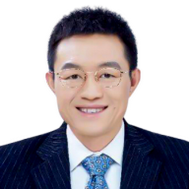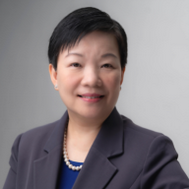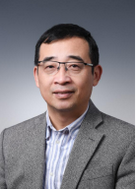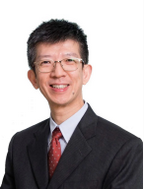大会报告
大会报告嘉宾
唐杰

报告题目:ChatGLM:从千亿模型到ChatGPT的一点思考
报告摘要:近年超大规模预训练模型取得突飞猛进的发展,OpenAI发布大规模自然语言预训练模型GPT-3/4,同时推出了AI聊天机器人ChatGPT,推理能力大大加强,能够回答非常复杂的推理问题,实现多模态融合。清华自研了GLM-130B中英双语模型,参数1300亿,算法采用自研的GLM,支持低成本、低资源使用,仅4张3090即可驱动,同时支持在NVIDIA、海光DCU、华为Ascend 910 和 神威Sunway处理器上进行训练与推理。我将介绍一下我们在研发GLM-130B过程中碰到的困难和收获,同时介绍我们对ChatGPT技术点的理解,分析下一步要实现ChatGPT需要走的路和面临的技术挑战。
GLM-130B: https://github.com/THUDM/GLM-130B
ChatGLM: https://github.com/THUDM/ChatGLM2-6B
Helen Meng

In terms of education, Helen led her department to launch Hong Kong’s first degree program in FinTech in 2017. In 2019, she began writing a pre-tertiary AI curriculum under the CUHK-Jockey Club AI4Future Project, with an emphasis on AI ethics. The project was recognized as Gold Award Winner in the Hong Kong ICT Awards 2021. Hong Kong’s Education Bureau announced in June 2023 that the curriculum (abridged version) will be taught in all local secondary schools starting 2024.
Helen was elected Fellow of IEEE, ISCA, HKCS and HKIE. She serves as elected Standing Committee Member of the China Computer Federation’s Speech, Dialogue and Auditory Processing Professional Committee. She is a mentor in CUHK’s Female Professorial Staff Support Network, and a member of the AI4SDGs AI for Children Working Group. Helen currently serves as appointed member of the HKSARG Financial Secretary’s Digital Economy Development Committee as Convenor of the Talent Cultivation Subgroup.
Title: Harnessing Machine Learning with Science in Speech and Language Technologies
Abstract: Speech and language technologies have advanced by leaps and bounds in recent years, empowered by Big Data, powerful machine learning algorithms, and massive-scale computation. As we reflect along the data-information- knowledge-wisdom hierarchy, how much has recent technological advancements deepened our understanding of human speech and language? How much can we steer further research and development with good grounding in speech and language sciences? This talk attempts to stimulate discussions in our community as we collectively shape future research and technology developments in our field.
金石

报告人简介:金石,现上海交通大学自然科学研究院院长,数学学院讲席教授。他同时担任上海国家应用数学中心联合主任与上海交通大学重庆人工智能研究院院长。他是美国数学会首批会士, 美国工业与应用数学学会会士, 和2018年国际数学家大会邀请报告人, 并于2021年当选为欧洲人文与自然科学院(Academia Europaea)外籍院士与欧洲科学院(European Academy of Sciences)院士。
他的研究方向包括科学计算,动理学理论,多尺度计算,计算流体力学, 不确定性量化,机器学习与量子计算等。报告题目:多体微观智能: 快速算法与软件
报告摘要:“微著“寓意”见微知著“, 致力于以微观多体粒子模拟手段探索自然和社会。 它是国内首款基于团队底层数学创新的Random Batch算法系列,针对多体问题自研的融合仿真、优化、控制等应用的通用科学计算平台。具有“算法原创、产品自研”、“硬件加速、国产适配”、“平台开放、代码开源”的技术特色。该软件可实现从微观到宏观体系不同尺度问题的模拟,对于微观N-体问题如分子动力学, 算法的复杂度为O(N) 并且高度并行。 其应用场景包括但不限于材料科学、生物医药、社会科学、群体智能等领域的粒子动力学和优化模型的快速求解,算法与软件将大大推动相关领域的研究和提升产业发展的效率,助力AI for Science。
李海洲

Dr. Li’s research interests include automatic speech recognition, natural language processing and neuromorphic computing. He has served as the Editor-in-Chief of IEEE/ACM TRANSACTIONS ON AUDIO, SPEECH AND LANGUAGE PROCESSING (2015-2018). Dr. Li was the recipient of National Infocomm Awards 2002, Institution of Engineers Singapore (IES) Prestigious Engineering Achievement Award 2013 and 2015, President's Technology Award 2013 in Singapore. Dr. Li was the President of International Speech Communication Association (2015-2017), President of Asia Pacific Signal and Information Processing Association ( 2015-2016), President, Asian Federation of Natural Language Processing (AFNLP, 2017-2018). Dr. Li is a Vice President of IEEE Signal Processing Society (2024-2026). Dr. Li is a Fellow of Academy of Engineering Singapore.
Title: Seeing to Hear Better
Abstract: Humans have a remarkable ability to pay their auditory attention only to a sound source of interest, that we call selective auditory attention, in a multi-talker environment or a Cocktail Party. However, signal processing approach to speech separation and/or speaker extraction from multi-talker speech remains a challenge for machines. In this talk, we study the deep learning solutions to monaural speech separation and speaker extraction that enable selective auditory attention. We review the findings from human audio-visual speech perception to motivate the design of speech perception algorithms. We introduce their applications in speech enhancement, speaker extraction, and speech recognition. We will also discuss the computational auditory models, technical challenges and the recent advances in the field.